WHAT DO BIRDS EAT?
Eating like a bird means different things to different birds. Here is a look at a few outstanding examples.
seed-eating birds
The various families of finch-like birds with classic wedge-shaped bills feed largely on seeds, but many other types of birds indulge in this energy rich food.
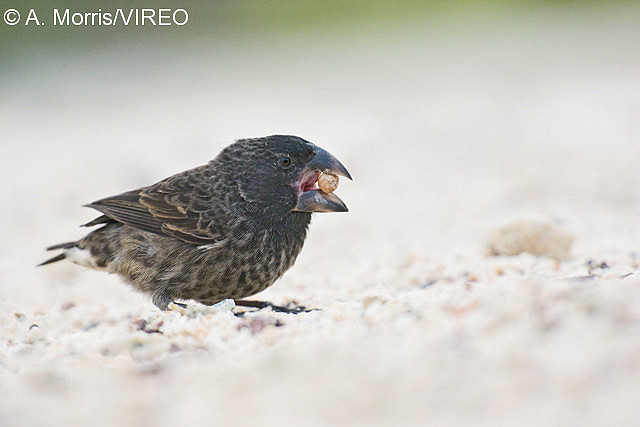
Large Ground-Finch Geospiza magnirostris
More seed-eating birds
fruit-eating birds
Frugivores are most diverse in the tropics where fruit is available year-round. Many polygynous birds are fruit eaters. Males of these species have bright colors to augment their courtship displays, so many brightly colored birds rely heavily on fruit for their diet. Not all of the photos here depict frugivores many omnivorous birds incorporate fruit into their diets.
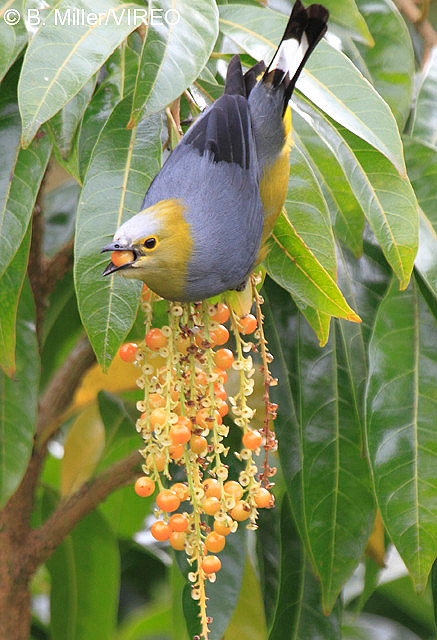
Long-tailed Silky-Flycatcher Ptilogonys caudatus
More fruit-eating birds
nectar-eating birds
Nectar provides a rich source of energy for many small birds, though these birds must supplement their diet with other foods. Hummingbirds constitute the largest family of nectivores, with approximately 350 species, all in the New World.
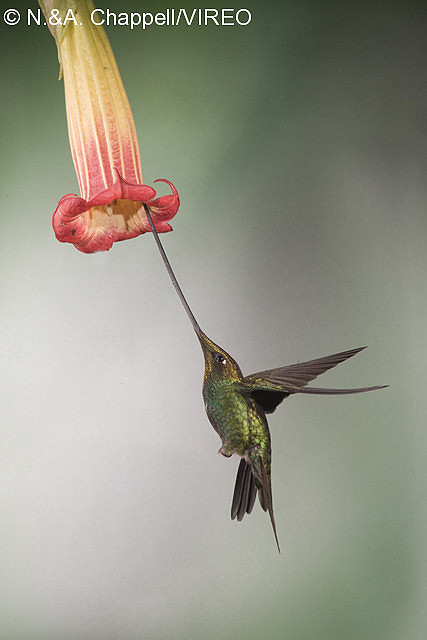
Sword-billed Hummingbird Ensifera ensifera
More nectar-eating birds
insect-eating birds
The majority of birds rely on insects for at least part of their diets. Insectivorous birds can get most of their water needs from their prey.
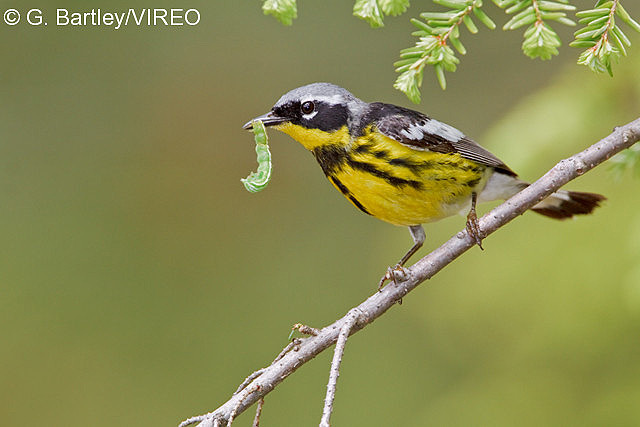
Magnolia Warbler Setophaga magnolia
More insect-eating birds
worm-eating birds
A few species of birds specialize in eating worms, while many other species eat worms occasionally
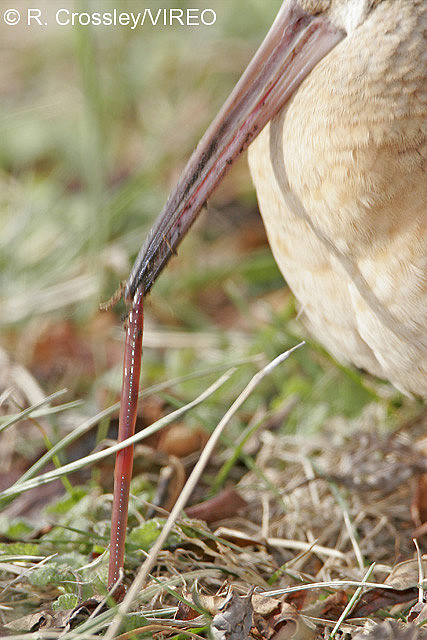
American Woodcock Scolopax minor
More worm-eating birds
fish-eating birds
Birds have evolved a wide variety of adaptations for feeding on fish. Some behavioral adaptations include plunge diving, surface diving, skimming the surface, spearing, and stealing. Beak shapes are highly varied correlating with the different behavioral adaptations. Fish-eating birds tend to have rear facing hooks on their tongues and a well developed proventriculus, the anterior chamber of the stomach.
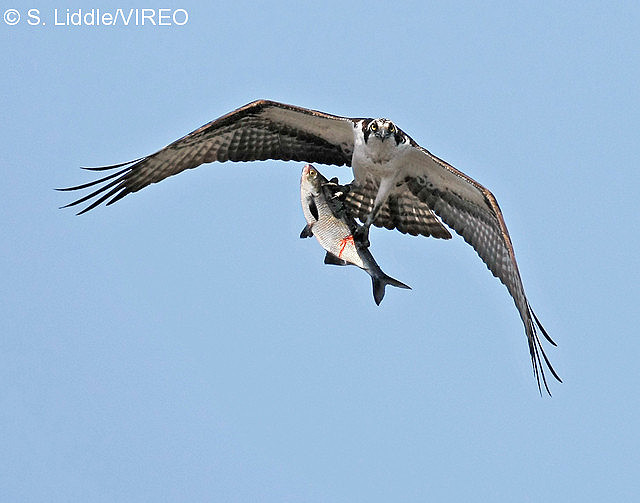
Osprey Pandion haliaetus
More fish-eating birds
amphibian-eating birds
Many species of birds relish amphibians, but none are exclusively amphibian eaters.
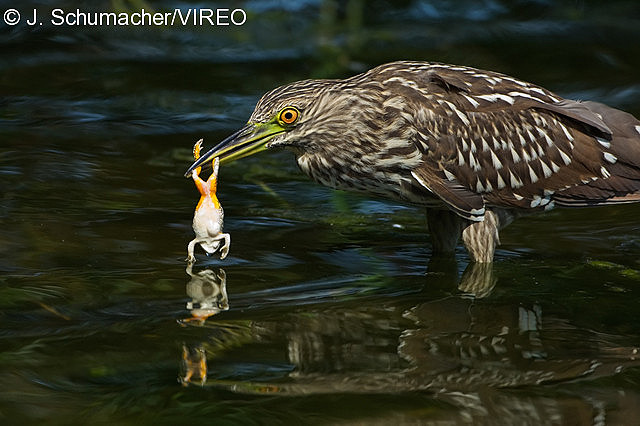
Black-crowned Night-Heron Nycticorax nycticorax
More amphibian-eating birds
reptile-eating birds
Reptiles are popular prey items for a wide variety of birds, but only a few raptors are truly reptile specialists.
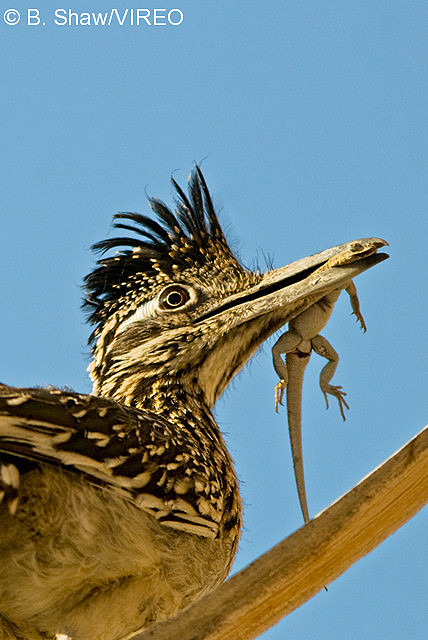
Greater Roadrunner Geococcyx californianus
More reptile-eating birds
bird-eating birds
A number of hawks and falcons specialize in preying on birds, but many types of birds are more opportunistic, especially when it comes to feeding on baby birds.
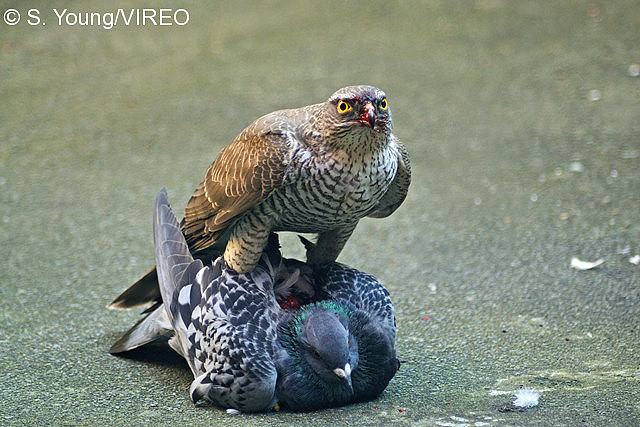
Eurasian Sparrowhawk Accipiter nisus
More bird-eating birds
mammal-eating birds
Mammals, especially rodents, are the dominant prey item for many raptors.
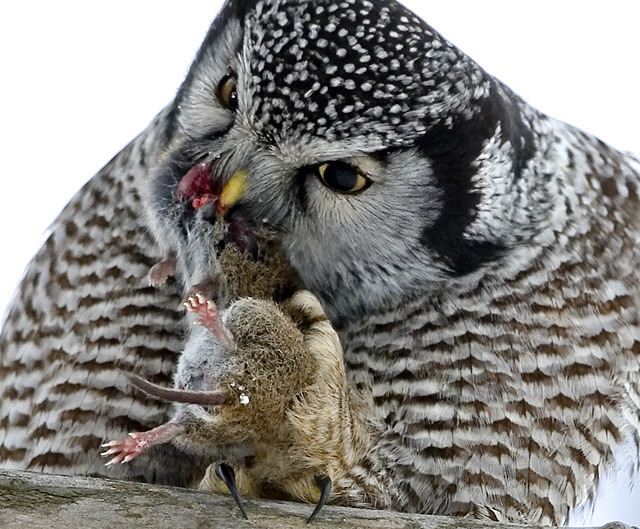
Northern Hawk Owl Surnia ulula
More mammal-eating birds
carrion-eating birds
New and Old World Vultures are the preeminent carrion-eaters. Many other species indulge to varying degrees.
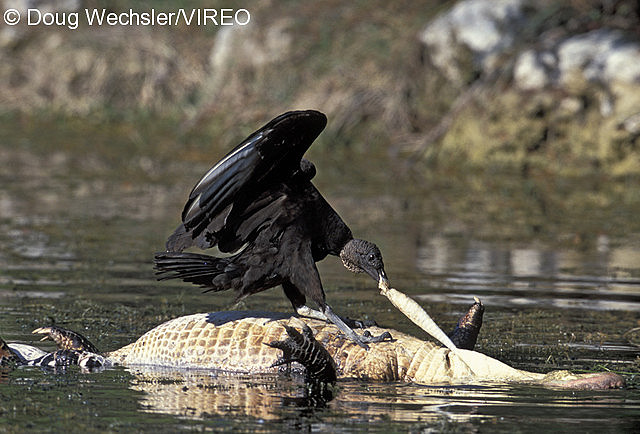
Black Vulture Coragyps atratus
More carrion-eating birds
egg-eating birds
Eggs of all sorts are a major source of nutrition for many birds, though no birds are exclusively egg-eaters.
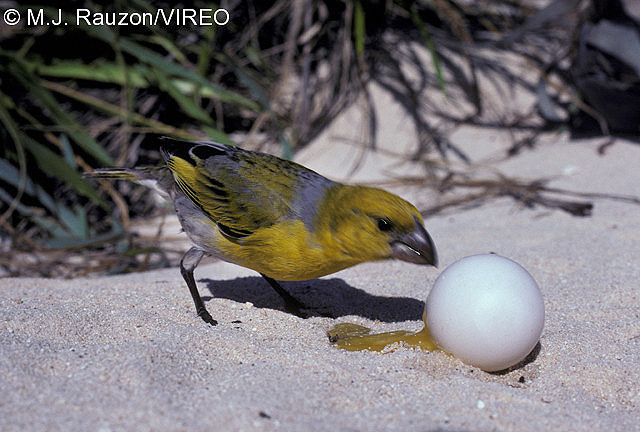
Laysan Finch Telespiza cantans
More egg-eating birds
>We value your feedback: Suggest additional terms or information
